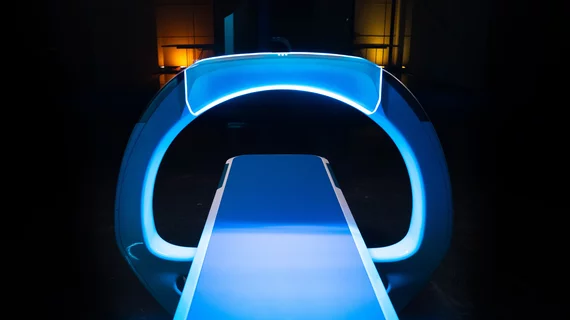Nanox seeking FDA clearance for its multi-source 3D imaging machine
Nanox Imaging has submitted a 510(k) premarket application for the first version of its multi-source digital tomosynthesis system, according to a 6-K form filed with the U.S. Securities and Exchange Commission on Thursday.
The Israeli startup hopes to receive U.S. Food and Drug Administration clearance for its novel multi-source Nanox.ARC 3D digital tomosynthesis modality. In April, the company gained federal clearance for its single-source digital X-ray technology after sustaining a handful of setbacks.
Upon the news, Nanox’s stock surged 15% to about $33 per share before settling for a 7% gain by midday. Overall, share price is down on the year after hitting a $72 high in January.
Chairman and CEO Ran Poliakine called the FDA submission an “important achievement.”
“There exists a significant unmet medical need globally for a more accessible and cost-effective medical imaging solution,” he added in a statement. “If cleared by the FDA, we believe our Nanox.ARC 3D digital tomosynthesis can address this need.”
Nanox has faced several hurdles during its time as a publicly traded company. Back in February, the imaging disruptor was forced to push back its timeline for shipping the first 1,000 Nanox.ARCs until the first quarter of 2022 following an FDA request for further information on the product.
Then in May, Poliakine announced a problem with a third-party supplier of a key ceramic tube in its now-FDA-cleared technology. Nanox hopes to ship its systems before 2023 approaches.
Read the entire 6-K form here.

